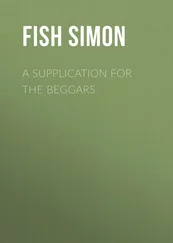The voices of young girls chirruped on the veranda. Students aged nine or ten sat cross-legged on the floor, stringing together garlands of marigold and tuberose to decorate the stage for the inauguration ceremony.
“Layla!” Miss Rose called out from a classroom as I walked past. I peeked through the door. Rose Cabral was sitting at the teacher’s desk, sorting through a pile of printed programs. There was a large world map tacked to the back wall and the room smelled overwhelmingly of varnish. Miss Rose, as she was called, was a young Anglo-Indian teacher with chestnut brown hair and pink cat’s-eye glasses with diamond accents. The small fry of the school swooned with adoration for her and wanted to lick her like a lollipop.
Miss Rose was about to say something when she sneezed daintily. “Oh dear,” she said, wiping her nose on a pink handkerchief edged with tatting lace. “I don’t know if it’s the varnish or this fickle weather. Layla, oh my! How you have grown! What a lovely young woman you are. Are you still being privately tutored by Miss Thompson, dear?”
“No, not any longer, Miss Rose,” I said. “I passed my matriculation last year.”
“So you must be all ready to get married now, eh? Suitors will be lining up outside your door.”
“Oh no—no, I don’t plan to get married,” I said quickly. “I want to become a teacher, actually.” I did not tell Miss Rose that marriage was not in my cards. It would be hard to explain to her why being born under a certain ill-fated star could negate your chances of finding a husband.
A tiny, round-shouldered girl with thick braids appeared in the doorway, pigeon-toed and fidgeting.
“Yes, what is it, Malika?” Miss Rose said.
“Miss...miss...”
“Speak up, child.”
“We have no more white flowers, Miss Rose.”
“The tuberose? I thought we had plenty. All right, I am coming.” Miss Rose sighed, bunching up her papers. “I better go and see what’s going on. Oh, Layla, there’s a packet of rice powder for you lying on the secretary’s desk in the principal’s office. I suppose you know what it is for?”
“It’s for the alpana I am painting in the entryway,” I said. Miss Rose looked blank, so I explained. “You know, the white designs—” I made curlicue shapes in the air “—the kind you see painted on the floor at Indian weddings and religious ceremonies?”
“Ah yes. They are so intricate. Boris Ivanov will like that. He loves Indian art. I hope you have brought your brushes or whatever you need, Layla. We don’t have anything here, you know.”
“I don’t need any brushes,” I said. “I just use my fingers and a cotton swab. I have that. Miss Rose, is my grandfather still here?”
“The Rai Bahadur left for the courthouse an hour ago. He said to tell you he will be home for lunch. Boris Ivanov’s train is running three hours late. Let me know if you need anything, Layla. I am here all afternoon.”
* * *
It was close to lunchtime when I got the alpana done, so instead of going to the library as I had planned, I went home. Dadamoshai’s house was a fifteen-minute walk from the school. I passed the holy banyan tree and saw that the protestors had abandoned their wilted banners behind it. The tree was over two hundred years old, massive and gnarled, with thick roots that hung down from the branches like the dreadlocks of demons. In its hollowed root base was a collection of faded gods surrounded by tired marigold garlands. I walked past the stench of the fish market, the idling rickshaws at the bus stand and the three crooked tea stalls that supported one another like drunken brothers, till I came to a four-way crossing where I turned right on to the Rai Bahadur Road.
It was an impressive road, man-made and purposeful: not like the fickle pathways in town, that changed directions with the rain and got bullied by groundcover. The road to my grandfather’s house was wide and tree-lined, with Gulmohor Flame Trees planted at regular intervals: exactly thirty feet apart. Their leafy branches crisscrossed overhead to form a magnificent latticed archway. On summer days the road was flecked with gold, and spring breezes showered down a torrent of vermilion petals that swirled and trembled in the dust like wounded butterflies. Rice fields on either side intersected in quilted patches of green to fade into the shimmering haze of the bamboo grove. Up ahead, the river winked over the tall embankment where fishing nets lay drying on bamboo poles silhouetted against the noonday sun.
I adjusted my eyes. Was that a man standing under the mango tree by our front gate? It was indeed. Even at that distance, I could tell he was a foreigner, just by his stance. His legs planted wide, shoulders thrown back, he had that ease of body some foreigners have. I was curious. What was he doing? His hands were folded together and he was gazing up at the branches with what appeared to be deep piety. Oddly enough, it looked as though the foreigner was praying to the mango tree!
The man heard me coming and glanced briefly in my direction. He must have expected me to walk on by, but when I stopped at our gate, he looked at me curiously. He was a disconcertingly attractive man in a poetic kind of way, with long, finger-raked hair and dark and steady eyes behind black-framed glasses. A slow smile wavered and tugged at the corners of his mouth.
When I saw what he was holding in his cupped hands, I realized I had misjudged his piety. It was a baby crow.
“Do you live in the Rai Bahadur’s house?” he asked pleasantly. He spoke impeccable Bengali, with no trace of a foreign accent. I figured he must be an Indian who probably lived abroad.
“Yes,” I said.
The man was obviously unschooled in the nuances of our society, because he stared at me candidly with none of the calculated deference and awkwardness of Indian men. I could feel my ears burning.
The crow chick struggled feebly in his hand. It stretched out a scrawny neck and opened its yellow-rimmed beak, exposing a pink, diamond-shaped mouth. It was bald except for a light gray fuzz over the top of its head. Its blue eyelids stretched gossamer thin over yet unopened eyes.
“We have a displaced youngster,” the man said, glancing at the chick. “Any idea what kind of bird this is?”
“It’s a baby crow,” I replied, marveling how gently he held the tiny creature. It had nodded off to sleep, resting its yellow beak against his thumb. He had nicely shaped fingernails, I noticed.
I pointed up at the branches. “There’s a nest up that mango tree.”
He was not looking at the tree, but at my hand. “What’s that?” he asked suddenly.
“Where?” I jerked back my hand and saw I had traces of the white rice paste still ringed around my fingernails. “Oh,” I said, curling my fingers into a ball, “that’s...that’s just from the alpana decoration I was doing at the school.”
“Are you related to the Rai Bahadur?”
“He is my grandfather.”
“Is this the famous English girls’ school everybody is talking about? What is the special occasion?”
“Today is the grand opening,” I said. “A Russian dignitary is coming to cut the ribbon.”
“Boris Ivanov?” he asked.
I stared at him. “How did you know?”
“There are not many Russians floating around this tiny town in Assam, are there? I happen to be well acquainted with Ivanov.”
I wanted to ask more, but refrained.
He tilted his head, squinting up at the branches, then pushed his sliding glasses back up his nose with his arm. The chick woke up with a sharp cheep that startled us both. “Ah, I see the nest. Maybe I should try and put this little fellow back,” he said.
“You are going to climb the mango tree?” I asked a little incredulously. The man looked too civilized to climb trees. His shirt was too white and he wore city shoes.
Читать дальше












